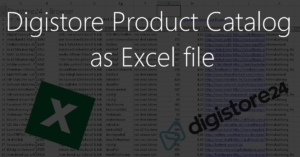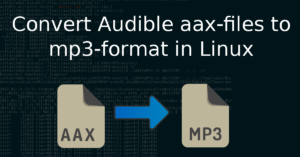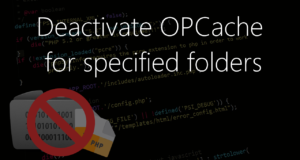Digistore24 – Product catalog as Excel
 Most readers of this blog who are on the road to online marketing should have heard about Digistore24. With over 50,000 members and more than 3,500 products, it is probably the largest German marketplace for digital products.
Most readers of this blog who are on the road to online marketing should have heard about Digistore24. With over 50,000 members and more than 3,500 products, it is probably the largest German marketplace for digital products.
Unfortunately with so many products their product catalog lost the clearness in some way. Although Digistore24 offers detailed information on each product, such as reward, churn rate, average reward per cart, etc., these criteria can not be filtered in the product list. As an affiliate, who is looking for a product which fits the own needs, one is left stranded.
Digistore product catalog as Excel table
That’s why I wrote a small tool, which makes a complete deduction of the listed products and writes them into a sortable and filterable Excel table. […]

 The following article is about how to find and install the appropriate (K)ubuntu driver for the Netis WF2190 WLAN stick. For a few weeks I work mainly under Linux (again) and as with almost every of my attempts trying to switch from Windows to Linux, there were again difficulties with the WiFi this time.
The following article is about how to find and install the appropriate (K)ubuntu driver for the Netis WF2190 WLAN stick. For a few weeks I work mainly under Linux (again) and as with almost every of my attempts trying to switch from Windows to Linux, there were again difficulties with the WiFi this time. So far I always assumed that when I buy music or audiobooks on Amazon for download, I’ll get mp3 files for download. Far from it – yesterday I once again bought a an audiobook and had to find out that I was forwarded after the purchase to Audible and there was confronted with a “protected” aax file. If I wanted to buy at Audible, I would have gone to Audible. Thanks for nothing, Amazon!
So far I always assumed that when I buy music or audiobooks on Amazon for download, I’ll get mp3 files for download. Far from it – yesterday I once again bought a an audiobook and had to find out that I was forwarded after the purchase to Audible and there was confronted with a “protected” aax file. If I wanted to buy at Audible, I would have gone to Audible. Thanks for nothing, Amazon! In this article, I want to show you how to disable the OPCache based caching for certain directories. (If you need a short introduction to the subject of OPCache, you should scroll down to the blue box in this article.) Although OPCache is a good idea in almost all cases, there are, as with many thing, situations where you should make an exception. Especially when it comes to the development or if a bugfix is to be tested, it can make sense to disable OPCache.
In this article, I want to show you how to disable the OPCache based caching for certain directories. (If you need a short introduction to the subject of OPCache, you should scroll down to the blue box in this article.) Although OPCache is a good idea in almost all cases, there are, as with many thing, situations where you should make an exception. Especially when it comes to the development or if a bugfix is to be tested, it can make sense to disable OPCache. In the following post there is once again a small Java code snippet, by means of which the standard mail program can be called/opened.
In the following post there is once again a small Java code snippet, by means of which the standard mail program can be called/opened.